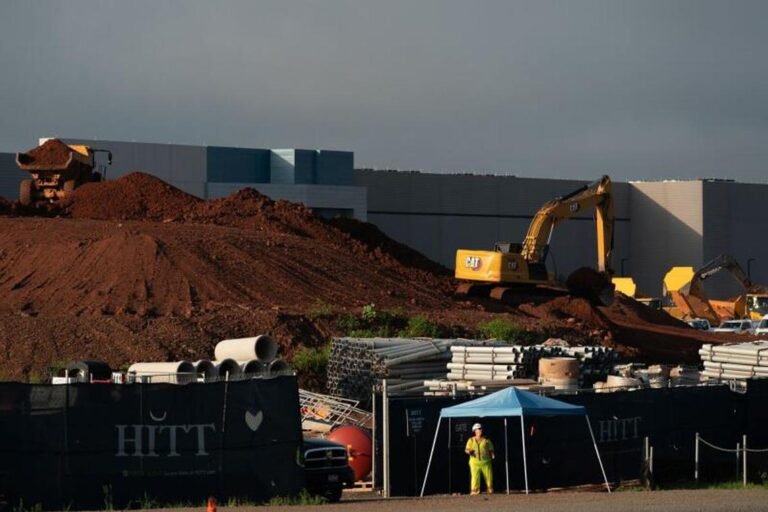WASHINGTON – President Donald Trump will announce US$70 billion (S$90 billion) in artificial intelligence and energy investments in Pennsylvania on July 15, the latest push from the White House to speed up development of the emerging technology.
Mr Trump is expected to share details of the new initiatives at an event outside Pittsburgh, according to an administration official, who spoke on the condition of anonymity to discuss the planning. Investments from a range of companies will include new data centres, power generation expansion and grid infrastructure upgrades, along with AI training programmes and apprenticeships, the official added.
Mr Trump will be joined by Republican Senator David McCormick who’s hosting the inaugural Pennsylvania Energy and Innovation Summit at Carnegie Mellon University. AI and energy leaders, including as many as 60 executives, are expected to attend. Among those slated to participate are BlackRock’s Larry Fink, Palantir Technologies’ Alex Karp, Anthropic’s Dario Amodei, Exxon Mobil’s Darren Woods and Chevron’s Mike Wirth, the official said.
Blackstone’s Jon Gray is expected to announce a US$25 billion project for data-centre and energy infrastructure development and a joint venture to increase power generation, which is expected to create 6,000 construction jobs annually and 3,000 permanent jobs, according to Mr Jake Murphy, a spokesman for McCormick.
Blackstone declined to comment. Axios reported the details of summit earlier.
The announcements on July 15 would mark the latest step by Mr Trump toward meeting his pledge of ensuring US leadership in artificial intelligence. Since the start of his second term, the president has taken a wide-ranging approach that includes drawing in private-sector investments, moving to ease regulations and accelerating the permit process for new projects.
Earlier in 2025, Mr Trump announced a US$100 billion investment in AI data centres from SoftBank Group, OpenAI, and Oracle Corp. The administration has also rescinded the AI chip curbs imposed by former president Joe Biden’s administration as part of a broader effort to boost American innovation and ease US allies’ access to advanced technology.
The administration’s moves are aimed at keeping the US ahead of China in the race for an advantage in AI. China has invested significantly in the emerging technology, and the Chinese startup DeepSeek rattled investors on Wall Street in January with its breakthrough R1 model that suggested AI could be developed for far lower cost.
Mr Trump and other administration officials have also stressed the importance of meeting another tech industry priority: ensuring the US has enough power to run energy-hungry AI data centres. In their view, adequate electricity supply is intertwined with national security, essential to keeping the US ahead of global competitors in the race to dominate artificial intelligence.
By 2035, data centres are projected to account for 8.6 per cent of all US electricity demand, more than double their 3.5 per cent share today, according to data from Bloomberg NEF.
The Trump administration has said expanding the use of coal-fired power, along with electricity from natural gas and nuclear, is needed to help fuel the boom and has warned of future blackouts if the that fails to happen. The US Energy Department has already used emergency authority to keep two-power plants that were slated to close online, and has signaled additional federal intervention may be forthcoming.
By hosting the event in Pennsylvania, Mr Trump and McCormick are elevating the political importance of accelerating AI development. The Keystone state is a so-called battleground that Mr Biden won in 2020 and Mr Trump took 2024.
The event follows the closing of the US$14.1 billion
acquisition of Pittsburgh-based US Steel
by Nippon Steel, an agreement that ended a bruising takeover battle that was embroiled in American politics for months until finally gaining support from Mr Trump.
That deal is expected to domestic steel production and protect thousands of jobs. Both Mr Trump and Mr Biden also jockeyed for the support of union workers, and the deal is opposed by the United Steelworkers union. BLOOMBERG

